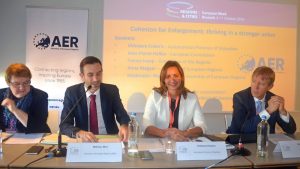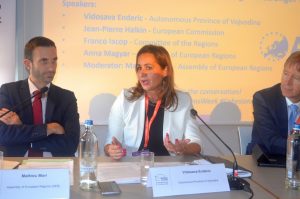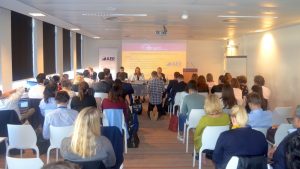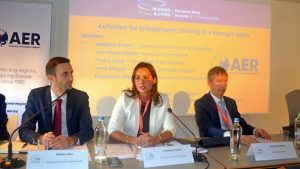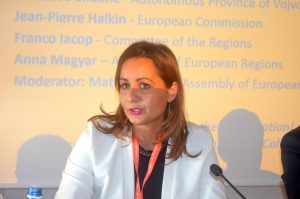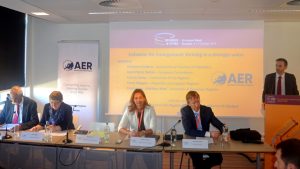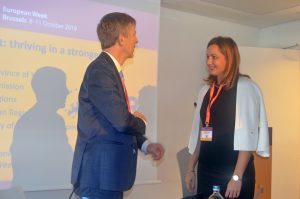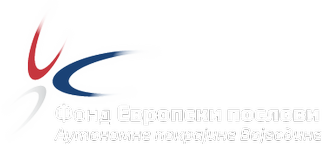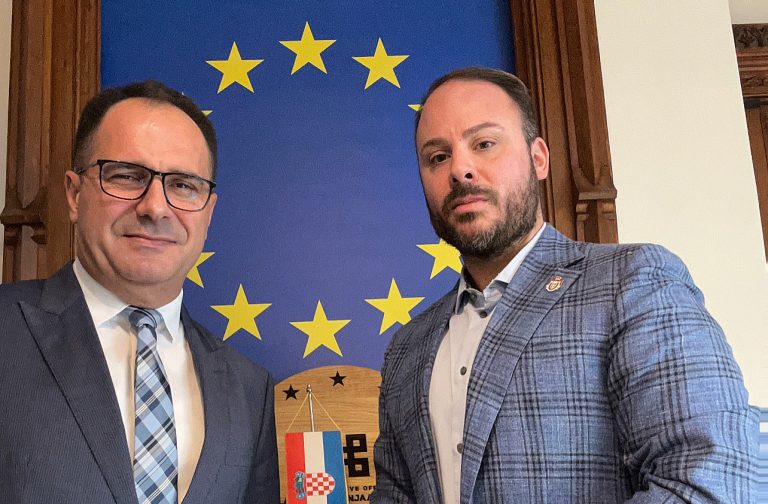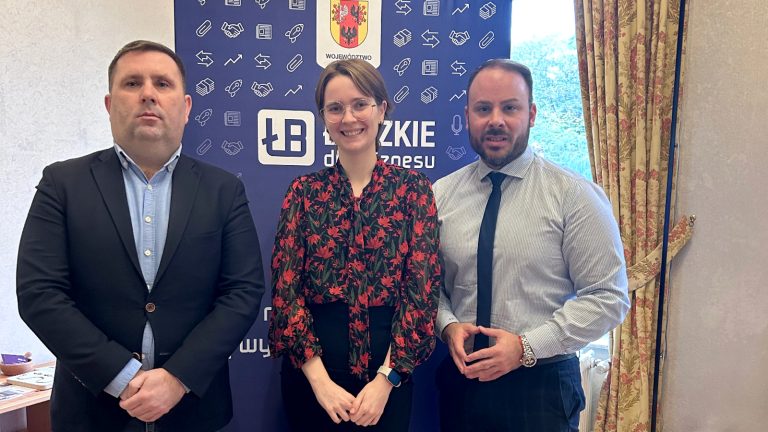The director of the European Affairs Fund of AP Vojvodina Vidosava Enderić participated in the workshop on the cohesion policy

Vidosava Enderić, Director of the European Affairs Fund of AP Vojvodina, was a panelist at the workshop ” Cohesion for Enlargement: thriving in a stronger Union organized by the Assembly of European Regions within the framework of the European Week of Regions and Cities in Brussels. Other speakers at the panel were Jean-Pierre Halkin, Head of Unit, Macro-regions, Transnational/Interregional Cooperation, IPA, Enlargement, European Commission Directorate-General for Regional and Urban Policy, Franco Iacop, Member of the European Committee of the Regions, Regional Councillor and President of the Friuli Venezia Giulia Regional Council and Ana Magyar, Vice-President of the Assembly of European Regions, Member of the European Committee of the Regions, Vice-President of County Council of Csongrád Megye. In the context of evolving debates and negotiations on the new EU budget and future cohesion policy after 2020, along with the renewed EU commitment to support the European paths of the Western Balkans, the role of the cohesion policy in strengthening the enlargement process in the region was discussed at the workshop. The speakers agreed that the cohesion policy helped bring the Western Balkans closer to the EU, in particular Serbia, which was the leader in the accession of the Western Balkans to the EU with an indicative date of accession in 2025. As Vidosava Enderić underlined the EU actively supported the Western Balkans with the Instrument for Pre-accession Assistance. Because of its favorable geographical position, Vojvodina had access to four cross-border cooperation programmes (with BiH, Croatia, Hungary and Romania), two transnational cooperation programmes (Danube and Adriatic-Ionian), as well as other EU programmes (Erasmus+, Horizon, Cosme and others). The available instruments were used to maximum in the AP Vojvodina, while the European Affairs Fund of AP Vojvodina continued to actively support the capacity building institutions in Vojvodina to use the available programmes. Enderić concluded that through the pre-accession assistance and its alignment with the objectives of the cohesion policy, the EU supported Serbia and facilitated its gradual transition from being a candidate country to its full EU membership.
